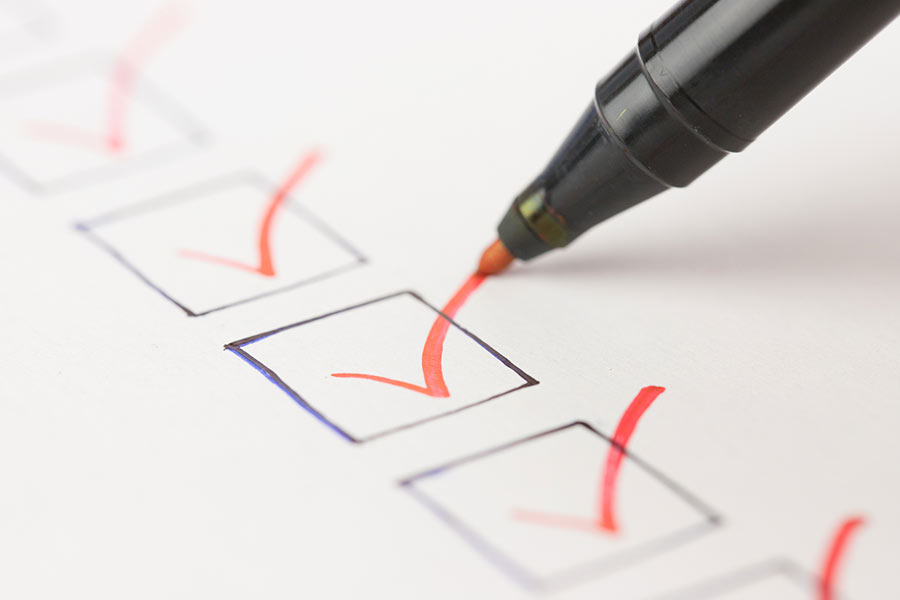Eligibility and Admissions Criteria for Addiction Treatment


WHAT ARE THE CRITERIA FOR SUBSTANCE USE DISORDERS?
Effective treatment for drug and alcohol addiction and/or co-occurring mental health disorder is not inexpensive. Formalized treatment programs at accredited drug and alcohol treatment centers, especially residential treatment that lasts 30 to 60 days or longer, can range from moderately expensive to very expensive. Before considering the cost of addiction treatment, though, it’s first wise to understand the criteria for various conditions that make someone eligible for addiction treatment.
Drug and alcohol addiction, called substance use disorder (SUD) by the American Psychiatric Association (APA), has specific criteria that must be present for a clinician to make a diagnosis of SUD. The APA, which publishes the Diagnostic and Statistical Manual of Mental Disorders, Fifth Edition (known as DSM-5), provides criteria for SUDs that result from the use of 10 separate drug classes: alcohol, caffeine, cannabis, hallucinogens, inhalants, opioids, sedatives, hypnotics, stimulants, tobacco, as well as other or unknown substances.
Problems involved with SUDs can be wide-ranging. Still, 11 basic criteria are involved in the diagnosis of a SUD, according to DSM-5. These are the criteria for alcohol use disorder (AUD):
- The substance is often taken in larger amounts or over a longer period than was intended.
- There is a persistent desire or unsuccessful efforts to cut down or control use of the substance.
- A great deal of time is spent in activities necessary to obtain the substance, use the substance, or recover from its effects.
- Craving, or a strong desire or urge to use the substance.
- Recurrent use of the substance resulting in a failure to fulfill major role obligations at work, school, or home.
- Continued use of the substance despite having persistent or recurrent social or interpersonal problems caused or exacerbated by the effects of its use.
- Important social, occupational, or recreational activities are given up or reduced because of use of the substance.
- Recurrent use of the substance in situations in which it is physically hazardous.
- Use of the substance is continued despite knowledge of having a persistent or recurrent physical or psychological problem that is likely to have been caused or exacerbated by the substance.
- Tolerance, as defined by either of the following:
- A need for markedly increased amounts of the substance to achieve intoxication or desired effect.
- A markedly diminished effect with continued use of the same amount of the substance.
- Withdrawal, as manifested by either of the following:
- The characteristic withdrawal syndrome in alcohol’s absence
- The substance (or a closely related substance) is taken to relieve or avoid withdrawal symptoms.
SEVERITY OF SUD
The DSM-5 gives clinicians the ability to specify how much of a problem a patient’s SUD is, or how severe his or her problem appears to be. The determination is based on how many symptoms are identified.
- 2-3 symptoms indicate a mild substance use disorder.
- 4-5 symptoms indicate a moderate substance use disorder.
- 6+ symptoms indicate a severe substance use disorder.
Clinicians also can add notations about “early remission,” “sustained remission,” “maintenance therapy” (if diagnosed with opioid use disorder), and “in a controlled environment.”
OTHER MENTAL HEALTH DISORDERS IN DSM-5
Besides SUDs, the DSM-5 provides diagnostic criteria for 21 other mental health conditions. These include:
- Neurodevelopmental disorders
- Schizophrenia spectrum and other psychotic disorders
- Bipolar and related disorders
- Depressive disorders
- Anxiety disorders
- Obsessive-compulsive and related disorders
- Trauma and stressor-related disorders
- Dissociative disorders
- Somatic symptom and related disorders
- Eating disorders
- Elimination disorders
- Sleep-wake disorders
- Sexual dysfunctions
- Gender dysphoria
- Disruptive, impulse-control and conduct disorders
- Neurocognitive disorders
- Personality disorders
- Paraphilic disorders
- Other mental disorders
- Medication-induced movement disorders and other adverse effects of medication
- Other conditions that may be a focus of clinical attention
Mental Health America (MHA) offers free online mental health screening tools for various mental health conditions, including anxiety, depression, bipolar disorder, eating disorder, psychosis, post-traumatic stress disorder (PTSD), and addiction, among other screening tools. After you complete screening tests, you’ll receive information, resources and tools you can discuss with a licensed treatment provider. Note that the MHA screening tools are not instruments for diagnoses.
HOW TO KNOW IF YOU’RE ELIGIBLE FOR ADDICTION TREATMENT
There’s no point in trying to guess if you’re suffering from drug addiction and eligible for addiction treatment. Your wisest course of action is to get in touch with your preferred drug and alcohol rehab center and arrange an appointment to discuss your situation, symptoms, and get started with the comprehensive assessment process. Within 24 hours of the assessment, you will undergo a complete psychiatric, medical and clinical assessment. Detoxification, as necessary, will then occur and a formalized program will be developed to meet your treatment needs. The tailored treatment program may include medication-assisted treatment and behavioral therapies that have been proven effective in addressing substance abuse.
Finding treatment services providers can be a daunting task for any individual. The Substance Abuse and Mental Health Services Administration (SAMHSA) offers a free behavioral health treatment services locator that is easy to use, is completely anonymous, and includes a help line you can call to help find treatment.
ADMISSIONS BEGINS WITH ASSESSMENT OF SYMPTOMS
After your research and a basic understanding of what constitutes a condition or disorder eligible for addiction treatment, the next step is to contact admissions at the drug and alcohol rehab center you’re considering. Following a brief consultation, during which they’ll answer all of your questions about insurance benefits, treatment, payment options, and what to expect, you’ll arrange a date to come in to begin treatment. What follows is a thorough and formal assessment of symptoms to determine if a SUD exists. If it does, a treatment care program will be developed specific to your needs.
At Beach House, admission to the residential treatment program is available to men and women, adults over the age of 18, and anyone with a drug or alcohol addiction (and/or a co-occurring disorder) who is able to participate in daily treatment programming.
WHERE TO GO FOR HELP ON ADDICTION AND MENTAL HEALTH INSURANCE QUESTIONS
The U.S. Department of Health and Human Services (HHS) has a guide that can prove helpful if you have questions about insurance for addiction and/or mental health coverage. This is especially useful if you have been denied coverage, reached a limit on your health insurance plan, or have a large copay or deductible. It is important to note that you may be protected by parity laws governing mental health and substance use disorder coverage. The HHS guide can help you locate federal and state agencies that may provide assistance as you navigate through the eligibility and admissions criteria for addiction treatment and find the treatment resources you need to start the healing process.
TAKE THE FIRST STEP
Don’t let fear keep you from seeking help for addiction treatment. When you make the call today, caring professionals will be able to assist you with next steps in overcoming an addiction.
Sources:
American Psychiatric Association. “Diagnostic and Statistical Manual of Mental Disorders – DSM-5” Retrieved April 30, 2018.
American Psychiatric Association. “What Is Addiction?” Retrieved April 30, 2018.
Beach House. “Admissions” Retrieved May 3, 2018.
Beach House. “Admissions Process” Retrieved April 30, 2018.
Mental Health America. “Mental Health Screening Tools” Retrieved May 2, 2018.
National Institute on Drug Abuse. “Drugs, Brains, and Behavior: The Science of Addiction” Retrieved May 2, 2018.
National Institute on Drug Abuse. “Principles of Drug Addiction Treatment: A Research-Based Guide (Third Edition). Alcohol Addiction” Retrieved May 2, 2018.
National Institute on Drug Abuse. “Principles of Drug Addiction Treatment: A Research-Based Guide (Third Edition). Behavioral Therapies” Retrieved May 2, 2018.
National Institute on Drug Abuse. “Principles of Drug Addiction Treatment: A Research-Based Guide (Third Edition). Principles of Effective Treatment” Retrieved May 2, 2018.
Substance Abuse and Mental Health Services Administration. “Behavioral Health Treatment Services Locator” Retrieved May 2, 2018.
Substance Abuse and Mental Health Services Administration. “SAMHSA Shares Latest Behavioral Health Data, Including Opioid Misuse” Retrieved May 3, 2018.
U.S. Department of Health and Human Services. “Mental Health and Addiction Insurance Help” Retrieved May 2, 2018.


